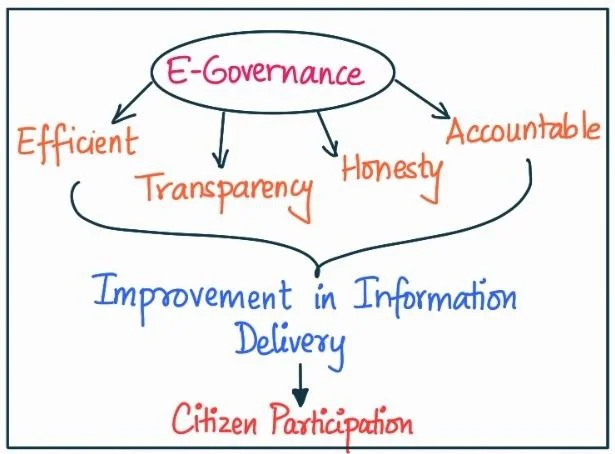Answer:
| Approach:
Introduction
- Introduce the Fourth Industrial Revolution (Digital Revolution) and its impact on various sectors of society, including governance.
Body
- Discuss the implications of e-Governance as an integral part of government.
Conclusion
- Emphasize the importance of adapting to technological advancements and harnessing their potential to improve governance and better serve citizens in the digital age.
|
Introduction:
The Fourth Industrial Revolution, also known as the Digital Revolution, has brought about significant changes in various sectors of society, including governance. It is characterized by advancements in technology such as artificial intelligence, the internet of things, big data analytics, and blockchain, among others.
Body:
These innovations have led to the widespread adoption of e-Governance, integrating technology into the functioning of governments worldwide. The adoption of e-Governance as an integral part of government has several implications:

- Improved efficiency and effectiveness: e-Governance enables governments to streamline their processes, reduce bureaucracy, and make better use of resources.
- Enhanced transparency and accountability: By making information and data easily accessible through digital platforms, e-Governance promotes transparency in government operations.
- Increased citizen participation: e-Governance facilitates more accessible and convenient channels for citizens to engage with their governments, such as online portals for submitting grievances, participating in consultations, and accessing information about government programs and services.
- Better decision-making: The use of data analytics and other digital tools in e-Governance allows governments to make more informed decisions based on real-time information and insights.
- Inclusiveness and accessibility: e-Governance enables governments to reach a wider audience, particularly those in remote or underserved areas, by providing services and information through digital channels.
- Cost reduction: By automating processes and reducing the need for physical infrastructure, e-Governance can lead to significant cost savings for governments.
Conclusion:
As the digital revolution continues to evolve, governments worldwide must continue to adapt and harness its potential to improve governance and better serve their citizens.
